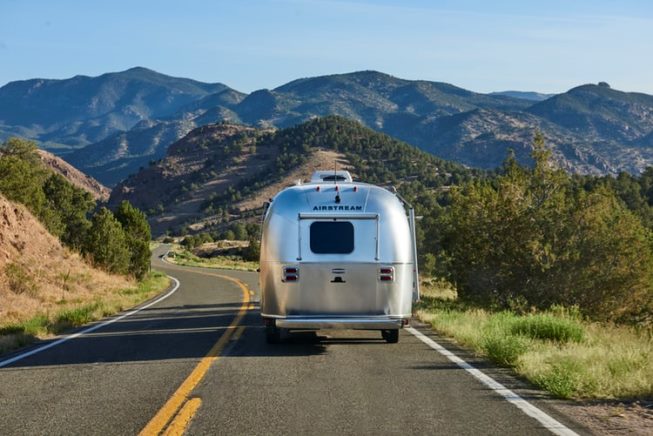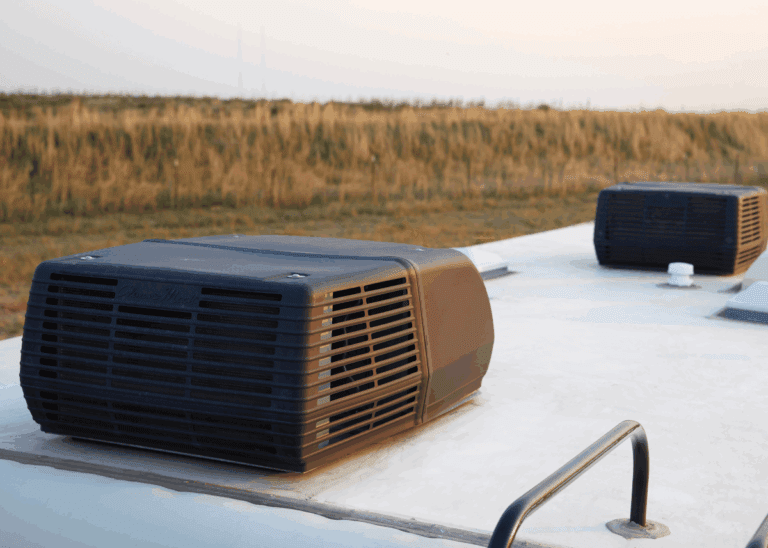A Quick Guide to RV Types

A Quick Guide to RV Types
Whether you’re an experienced RVer or a newbie to the lifestyle, it can be a bit overwhelming to understand the different types of RVs out there. The diverse range of options all suit different tastes and types of travel, so it’s important to understand the choices you have. This will help ensure that you choose a rig that works best for you!
Here are some of the main types of RVs on the market:
Class A Motorhomes
If your dream is to bring the comforts of home on the road, then Class A motorhomes are your ticket to opulent travel. Built on sturdy truck or bus chassis, these beauties boast residential features and spacious interiors. However, be ready to embrace their larger-than-life presence on the road.
Advantages:
- Luxury living on wheels
- Variety of floor plans
- Easy access to living quarters from the driver’s seat
- Great visibility for the driver
Disadvantages:
- Cumbersome to maneuver
- Less fuel efficient than smaller RV types
- Higher upfront costs
Class B RVs
For those who crave a more nimble travel companion, Class B RVs, also known as ‘camper vans,’ are the perfect fit. These smaller, van-like RVs are easy to park, fuel efficient, and ideal for weekend getaways.
Advantages:
- Compact and easy to maneuver
- Fuel efficient
- Cost effective
Disadvantages:
- Limited amenities
- Less space compared to larger RV types
- Minimal storage
Class C RVs
Meet the ‘mini motorhome’ that strikes the balance between Class A luxury and Class B convenience. Class C RVs, built on a van chassis, are easy to drive, offer ample space, and can be loaded with amenities that rival their larger counterparts.
Advantages:
- Easy to drive
- More space and storage than Class B RVs
- Fuel efficient
- Ability to tow another vehicle
Disadvantages:
- Parking limitations
- Slightly less fuel efficiency than Class B
- Falls short of the full luxury of Class A
Travel Trailers
For the independent traveler who wants the flexibility of having a separate vehicle, travel trailers are the way to go. Towed behind your vehicle, these trailers offer spacious interiors but require a bit of compromise.
Advantages:
- Easy to unhitch and use the vehicle
- Fuel efficient compared to motorhomes
- Lower maintenance costs compared to motorized rigs
- Spacious living areas
Disadvantages:
- No access to living space while driving
- May sway while being towed
- Requires a suitable towing vehicle–typically a mid- to full-size pick-up truck or SUV, depending on the travel trailer’s weight
Fifth Wheels
Similar to travel trailers but with a twist, fifth wheels mount onto a truck bed, providing stability and additional ceiling height. This type of RV is ideal for those who seek spacious living with enhanced towing stability.
Advantages:
- Stable towing
- Spacious living and storage
- Easy to hitch/unhitch
- Maneuverability
Disadvantages:
- Less fuel efficient than travel trailers
- Requires a ¾- to 1-ton truck for towing
- Typical split-level floor plan is not ideal for everyone
- Higher upfront costs
With this information in hand, you can choose an RV that reflects your specific wants and needs. What type of RV is your favorite? Let us know in the comments or contact us today!


